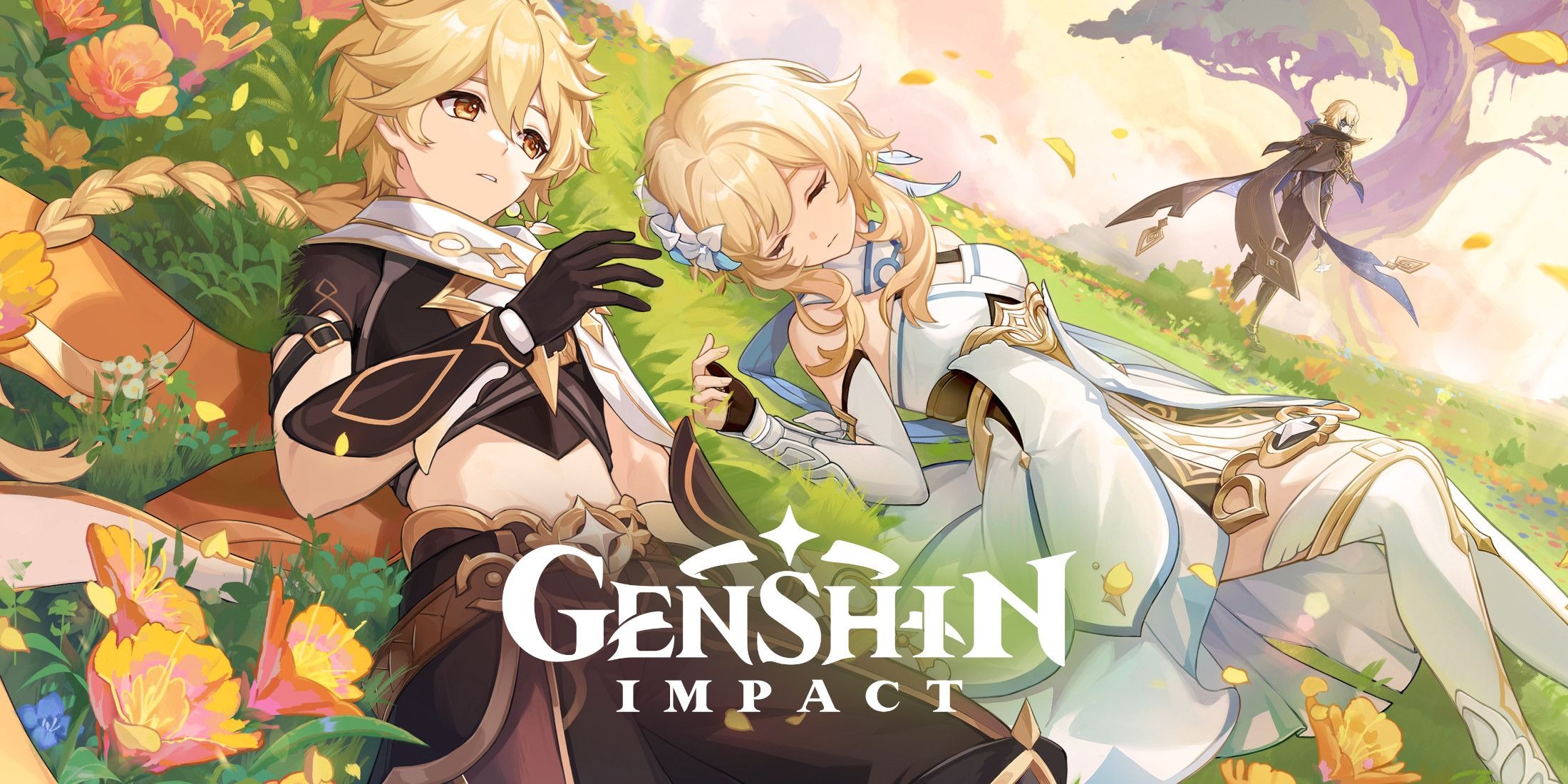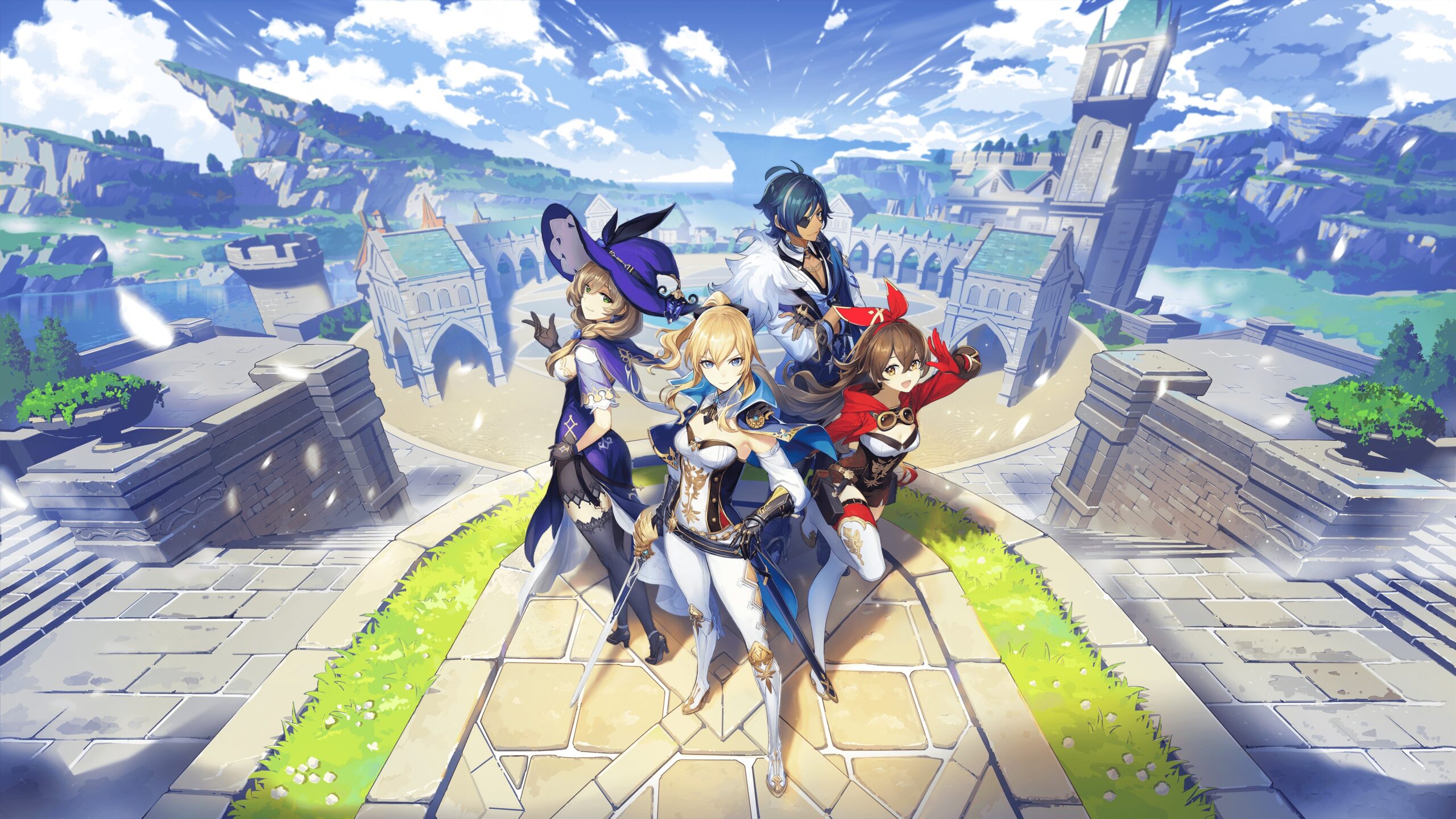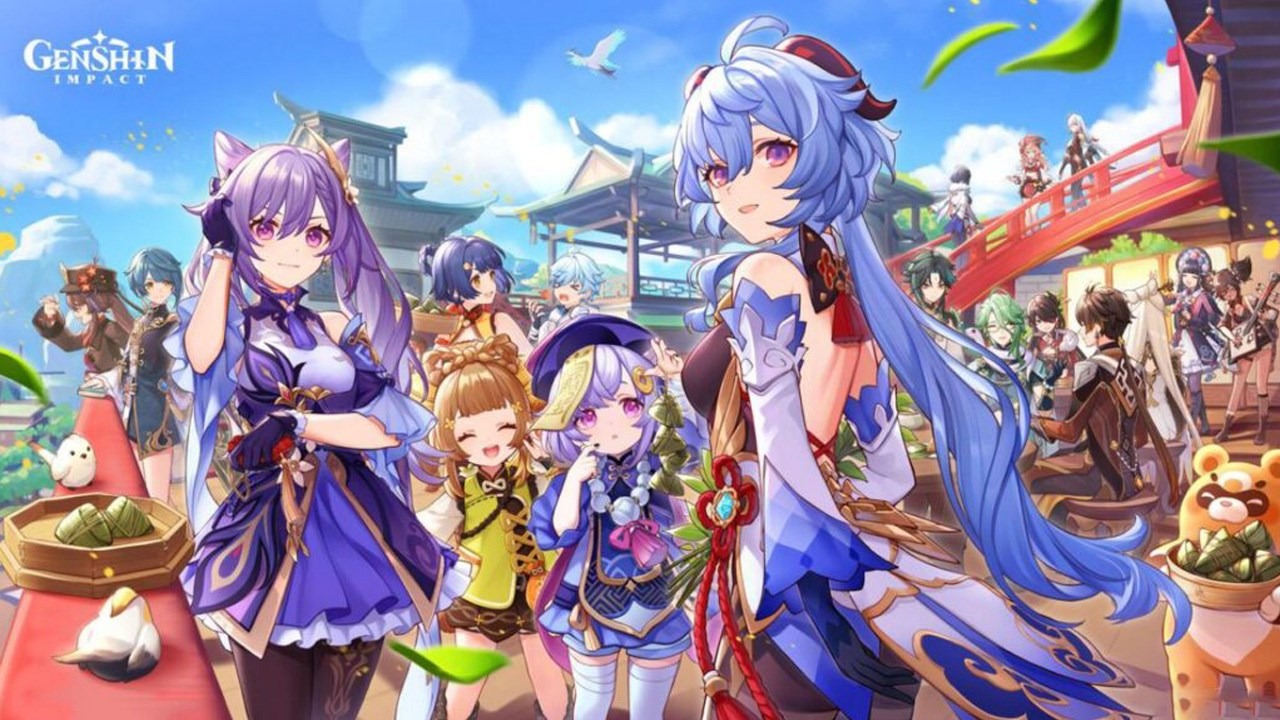
Genshin Impact
All trademarks belong to their respective owners. Get GameEmbark on an epic open-world journey in Genshin Impact — the free anime-style RPG with elemental combat, rich lore, and stunning visuals. Download now and explore Teyvat!
The Gacha Gamble and Free-to-Play Philosophy: Understanding Genshin Impact’s Economic Model

Genshin Impact stands out not only for its captivating open world and engaging combat but also for its highly successful implementation of the “gacha” monetization model within a free-to-play framework. This system, while allowing anyone to download and experience the vast majority of the game’s content for free, relies on players spending money on in-game currency to “Wish” for desirable characters and weapons. Understanding this economic model is crucial for players to manage expectations, enjoy the game responsibly, and navigate the often-debated line between generosity and predatory design.

1. The Primogem Economy and “Wishes”:
At the heart of Genshin Impact’s monetization are Primogems, the premium in-game currency.
- How to Get Primogems:
- Free-to-Play (F2P) Sources: Completing daily commissions, progressing the Archon (main) and World Quests, exploring new regions (finding chests, unlocking waypoints, completing puzzles), participating in limited-time events, completing achievements, and redeeming occasional promotional codes. These sources provide a steady, albeit slower, stream of Primogems.
- Paid Sources: Purchasing Primogem packs directly with real money through the in-game shop.
- Wishes (The Gacha): Primogems are primarily spent on “Wishes,” which are essentially pulls from various banners.
- Character Event Banners: Feature one or two limited-time 5-star characters with a boosted drop rate, alongside three 4-star characters. These are the most sought-after banners.
- Weapon Event Banners: Feature two limited-time 5-star weapons and several 4-star weapons.
- Standard Banner: Features a rotating pool of standard 5-star characters and weapons, along with 4-star items.
- Pity System: To mitigate the randomness of gacha, Genshin Impact employs a “pity” system.
- Soft Pity: The chance of getting a 5-star item significantly increases after around 74-75 pulls.
- Hard Pity: A 5-star item is guaranteed by the 90th pull on character banners, and 80th pull on weapon banners.
- Guaranteed 5-star (50/50 and Guaranteed): On character event banners, your first 5-star character has a 50% chance to be the featured character. If it’s not, your next 5-star character on any character event banner is guaranteed to be the featured one. This “guaranteed” status carries over between banners.
- Constellations and Refinements: Acquiring duplicate characters unlocks their “Constellations,” powerful passive bonuses that significantly enhance a character’s abilities. Duplicate 5-star weapons provide “Refinements,” boosting their passive effects. This encourages players to pull multiple copies of a character/weapon, which can be expensive.
2. Other Monetization Avenues:
Beyond Wishes, Genshin Impact offers other optional purchases:
- Blessing of the Welkin Moon: A 30-day subscription that provides a small daily trickle of Primogems (90 per day for 30 days) and an immediate lump sum of 300 Genesis Crystals (which convert to Primogems). It’s generally considered the most “value-for-money” purchase for F2P players who want to spend a little.
- Battle Pass (Gnostic Hymn): A seasonal reward track. The free version offers basic rewards, but purchasing the “Gnostic Hymn” unlocks significantly better resources (XP books, Mora, talent books) and a unique, powerful 4-star weapon choice at the end of the season.
- Genesis Crystals: A separate premium currency primarily used to purchase Primogems or cosmetic outfits for certain characters.
3. The Free-to-Play Philosophy and Its Appeal:
Despite its gacha mechanics, Genshin Impact is widely considered very F2P-friendly for several reasons:
- Complete Content Access: All story content, exploration areas, world bosses, and most events are fully accessible without spending a single cent. Players can experience the entire narrative and explore the vast world regardless of their spending.
- Generous Primogem Earning: Consistent play, daily activities, and event participation provide enough Primogems for F2P players to accumulate a reasonable number of Wishes over time, allowing them to acquire desired 5-star characters occasionally.
- Powerful 4-Star Characters: Many 4-star characters are incredibly strong and viable for all content, including the most challenging Spiral Abyss. Players do not need a full team of 5-star characters to succeed.
- Skill Over Spend: While powerful characters certainly help, player skill in elemental reactions, team building, and combat mechanics is often more crucial than having every top-tier 5-star character.
4. The Ongoing Debate and Future Implications:
The gacha model remains a contentious topic in gaming.

- “Whale Hunting”: The system can encourage “whales” (players who spend large amounts of money) to chase specific characters or max out constellations, generating significant revenue for miHoYo.
- Psychological Impact: The randomness, coupled with the desire for powerful or aesthetically pleasing characters, can create a psychological pull that leads to excessive spending for some individuals.
- Transparency: While Genshin Impact’s pity system is transparent, the broader conversation around loot boxes and their ethical implications continues globally.
Genshin Impact’s economic model is a finely tuned balance that has propelled it to massive global success. By offering a high-quality, constantly updated free experience alongside enticing monetization options, it manages to cater to both casual F2P players and dedicated spenders. The future of the game will likely see continued refinement of this model, as miHoYo balances its financial goals with maintaining its broad player base’s satisfaction.